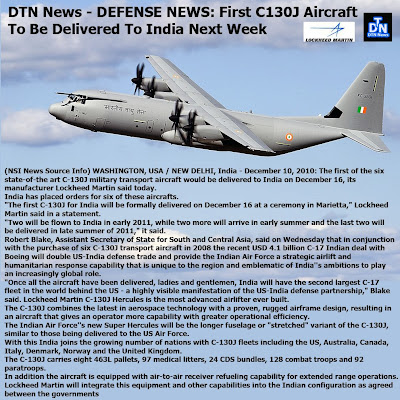Posted on 01/22/2011 7:31:07 AM PST by sukhoi-30mki
Indian tanker contest draws Airbus, Ilyushin bids, but Boeing stays away
By Greg Waldron
Airbus Military and Ilyushin have submitted bids in India's revived competition for six in-flight refuelling aircraft, while Boeing remains on the sidelines.
A New Delhi-based source close to the competition confirms that the Airbus A330 multi-role tanker transport (MRTT) is in contention for the requirement, along with the Ilyushin Il-78 tanker. The Indian air force already has an active fleet of seven Il-78MKs, says Flightglobal's MiliCAS database.
Details on India's selection schedule are unclear, however. "There is no decision on the horizon," says the source.
© Excel Media/Rex Features
India's air force already operates seven Il-78 tankers
Boeing has not submitted a bid with the 767-based tanker it is currently pitching in the US Air Force's long-delayed KC-X contest.
"Only upon the outcome of the KC-X competition will we be able to fully determine our ability to participate in future international competitions," says Vivek Lall, vice-president, Boeing Defense, Space & Security, India.
EADS North America is offering the A330-based KC-45 against the Boeing 767 NewGen Tanker in the 179-aircraft KC-X contest. The former's offer draws heavily on the MRTT configuration developed for launch customer Australia, which is awaiting delayed first deliveries from a five-strong order.
"Boeing is committed to helping our international customers meet their military requirements, but we are not in a position now to discuss in any detail interest expressed by specific customers," says Lall. "Generally, however, when our international customers issue a request for information or interest, we conduct a detailed evaluation of the request, study our inventory of potential offerings and make a decision based on that information."
In September 2010, India's defence ministry issued a fresh request for proposals for six tankers, reviving a contest worth about $2 billion.
© Airbus Military
New Delhi had previously selected the A330 MRTT (above) to meet its air force requirement, but cancelled the programme last year before a contract could be signed. That decision followed pressure from India's finance ministry on the proposed cost of the deal.
The Airbus offering would appear to be in a strong position, with the modified A330 design having already been ordered by Australia, Saudi Arabia, the United Arab Emirates and the UK.
In September 2009, an Airbus executive told Flightglobal he did not expect stiff competition outside the USA from Boeing's KC-767A. "We are going to get all the market," he said. "We don't have competition today, to be honest."
If it’s a tanker, why would it have all the windows?
If that is the case, they can buy any commercial airliner they choose and have them modified with underwing refueling pods. They should be able to get new tankers very cheaply.
Because it's an MRTT, Multi-Role Tanker Transport. The fuel is carried in the wings, and the fuselage is open for cargo or passengers or both.
Nicer than C-130’s for troop transport then. Those guys don’t have windows.
From China to India and a number of places between. The military build-up of these unstable nations reminds me of the 30’s. We had a Progressive/Socialist President looking the other way then as well.
>>There is no decision on the horizon
LOL!
Just go straight to unmanned refuelling platforms.
No J. they've got that covered.

And the USN P-8s will have a boom refueling recepticle, not a probe, making it the only Navy aircraft I know of with boom refueling. I don't know if the P-8Is for the IN will have probes, recepticles, or nothing at all.
And last, there was talk of retrofiting RAF C-17s with probes, but I don't know if that ever happened, either. It'd take a loooong time to refuel a dry C-17 via hose and drogue.
Disclaimer: Opinions posted on Free Republic are those of the individual posters and do not necessarily represent the opinion of Free Republic or its management. All materials posted herein are protected by copyright law and the exemption for fair use of copyrighted works.